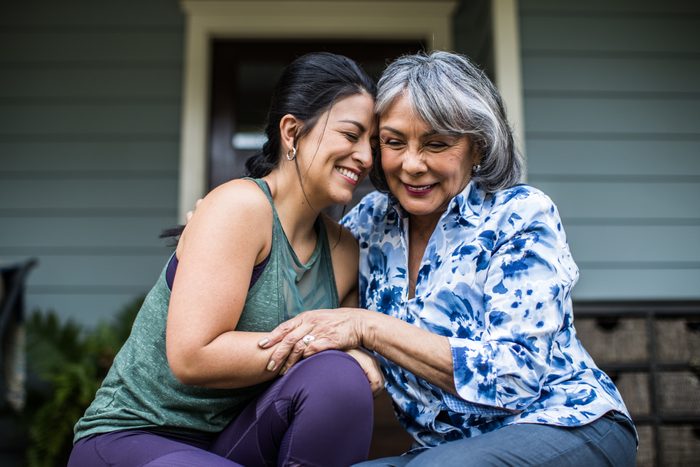
Breakups aren’t just hard—2021 research published in the Journal of Psychology & Clinical Psychiatry found that the breakdown of a relationship is considered a traumatic experience that can trigger serious emotional and physical distress. But while it can take time to heal from heartbreak, studies since the 1980s have noted a compelling human trend: People often experience positive life changes after a traumatic event, a phenomenon called post-traumatic growth.
This theory has spurred ongoing debate since it was first coined, with researchers continuing to study its limitations, such as how the experience differs based on circumstances, situations, and personality factors. Yet relationship experts say that the breakup experience is one instance in which this positive transformation can truly occur—if we’re open to looking inward and reflecting on the relationship, its ups and downs, and its inner dynamics.
Who Moves on From a Relationship Faster? A Psychologist Shares the Data

Breakup lessons and what they can teach you about yourself
After a breakup happens, there’s typically a sense of shock, surprise, or uncertainty, says Erin Engle, PsyD, a psychologist at NewYork-Presbyterian/Columbia University Irving Medical Center. “The natural tendency is to reflect on the many facets of the relationship and try to understand why it ultimately didn’t work,” she explains. It can feel easy to self-blame and wonder what you might have done wrong—or even experience wild yo-yo emotions like relief, hopelessness, excitement, and resentment.
But “be patient and compassionate with yourself, as this is a process that naturally unfolds,” she says. And by allowing the emotions to rise, you can learn valuable breakup lessons that guide future relationships with others and with yourself.
Healthy vs. Unhealthy Relationships: How to Tell the Difference

Breakups offer a deeper understanding of your values
“I encourage people to think about what was missing in the relationship, or to examine what they needed versus what was actually on offer and received,” Dr. Engle says. For example, if a source of stress throughout your relationship was not hearing back about plans or feeling anxiety over unanswered texts, you and your partner’s values about communication were misaligned. “This self-understanding can often make meaning out of an emotionally draining experience and turn it into a positive for the future.”
The 11 Best Self-Care Ideas Trending for 2023, Tested by Our Editors

You’ll find acceptance is a powerful healing tool
The way we deal with a breakup is similar to grieving, says Michelle Hagen, Licensed Marriage and Family Therapist at Cerebral. Getting stuck in the denial phase is a common coping mechanism to numb the pain and confusion of the situation. “You need to consciously give yourself permission to let go of what is weighing heavily on you,” she says. “Tell yourself that it is OK to move on.”
But here’s the good news: moving through the stages of grief—no matter how long it takes you—is a mental exercise that can make you more resilient and able to tap into the healing power of acceptance in the face of future challenges.

You’ll learn your needs are valid—and deserve to be met
Self-blame and self-loathing are common post-breakup, Dr. Engle says. But “it’s important to remember that relationships are a dynamic,” she explains. “Relationships are more about a fit, as opposed to a partner doing or saying all of the right things to simply keep a relationship going.” So, consider how your own needs were or were not fulfilled, like quality time, respect, trust, safety, and empathy. “The questions you ask yourself during the reflection process help inform how you can use what you learned to develop closer bonds and communicate [your needs] more effectively.”
19 Red Flags You’re Being Manipulated, According To Therapists

Boundaries are healthy, and you can find where you need to set yours
Post-breakup, people often spend a lot of time recalling things they wish they didn’t do in the relationship—like “maybe I silenced myself too much, maybe I didn’t stand up for myself and my needs, maybe I was always making compromises,” says Dontea’ Mitchell-Hunter, LMFT, therapist and CEO of Soirées In Therapy. Still, self-punishment and regret aren’t the answers here. Instead, she says, use this important time for exploring where your personal boundaries may have been a bit fuzzy or nonexistent altogether.

You can better understand your attachment style
Attachment theory refers to how we emotionally connect and bond with others (and it’s usually a byproduct of our experiences growing up). Understanding yours can help you learn more about your behaviors and needs in relationships—and this knowledge can give you a better grasp over anxiety-driven patterns and how to break them, Mitchell-Hunter explains. Because our attachment styles run deep, this work is best done with a therapist, she acknowledges. But considering questions like how you responded to fights, how you felt emotionally around your ex-partner (and how you felt when not in their presence), and sources of anxiety in the relationship can help you identify patterns you can consciously work to change.

Your support system is a source of strength
Dr. Engle says she can’t underestimate the importance of friends, family, and other loved ones following a breakup. If you need a few days to decompress and make sense of what happened, by all means take the time for yourself. But resist the urge to self-isolate. “Inviting your support system to honestly provide perspective can help us to shift out of unhealthy emotions such as self-blame or self-loathing and move toward integration and better self-understanding,” she says.
Of course, if you’re struggling to talk with friends about your breakup or addressing the topic feels too difficult, “it can also be helpful to seek out consultation with a trained mental health provider in order to have an objective perspective or to work through more personal aspects of a breakup or the intense emotions that result from loss,” Dr. Engle advises.
For daily relationship wisdom, get The Healthy @Reader’s Digest newsletter and follow The Healthy on Facebook, Instagram, and Twitter. Keep reading:
